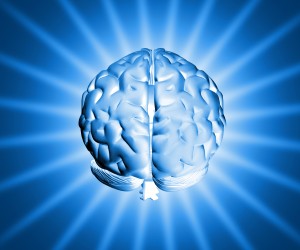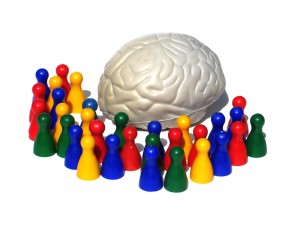The Old Testament and Inspiration
 I recently read an article authored by OT scholar and professor Peter Enns in which he discussed the compilation process of the OT (link to article here). This has been of particular interest to me as of late due to my desire to understand the nature of Scriptural inspiration. I believe that understanding the process of inspiration is concomitant with how we understand the very mind and heart of God, a quest which presumably all Christians have embarked upon (cf. Jn 17:3).
I recently read an article authored by OT scholar and professor Peter Enns in which he discussed the compilation process of the OT (link to article here). This has been of particular interest to me as of late due to my desire to understand the nature of Scriptural inspiration. I believe that understanding the process of inspiration is concomitant with how we understand the very mind and heart of God, a quest which presumably all Christians have embarked upon (cf. Jn 17:3).
The Brain Science of Ambition
 Yesterday, after we published Gerardo’s article on theories of intelligence, a fascinating article appeared on Scot McKnight’s Jesus Creed blog:
Yesterday, after we published Gerardo’s article on theories of intelligence, a fascinating article appeared on Scot McKnight’s Jesus Creed blog:
This article was written by ‘RJS’ who is a frequent contributor on the Jesus Creed website. RJS is a sincere Christian, a woman, an accomplished scientist, and a faculty member at a secular university. She writes primarily about the relationship between faith and science and occasionally about the role of women in the church.
In this article, she discusses what brain imaging technology (fMRI) has revealed about some of the Seven Deadly Sins. She reports that lust, especially in males, “sets nearly the whole brain buzzing,” producing a biochemical response that can be very addicting and destructive. Envy produces patterns of brain activity that reflect ‘a kind of social pain,’ and when the object of envy (the person who incites it) experiences a downfall, the response is a kind of pleasure which is well described by the German word schadenfreude.
Psychology Meets Religion (Part 1)
 As a student of psychology, I encounter many research studies that can speak on matters of faith and personhood. If the Bible teaches us about who man inherently is, then I have believed that even secular science should confirm this as faith and science can’t conflict (though faith and scientist can). And indeed, in many studies I have come across, this is exactly what I have found. There are quite a few psychology studies that confirm the Bible’s teaching on who man is, what motivates man, and what ultimately makes him happy.
As a student of psychology, I encounter many research studies that can speak on matters of faith and personhood. If the Bible teaches us about who man inherently is, then I have believed that even secular science should confirm this as faith and science can’t conflict (though faith and scientist can). And indeed, in many studies I have come across, this is exactly what I have found. There are quite a few psychology studies that confirm the Bible’s teaching on who man is, what motivates man, and what ultimately makes him happy.
One line of research that has recently gotten a lot of attention deals with what are called “lay theories of intelligence.” This is not a theory on what intelligence is as much as a theory about what people think intelligence is and how it shapes their behavior.

Last 30 Comments